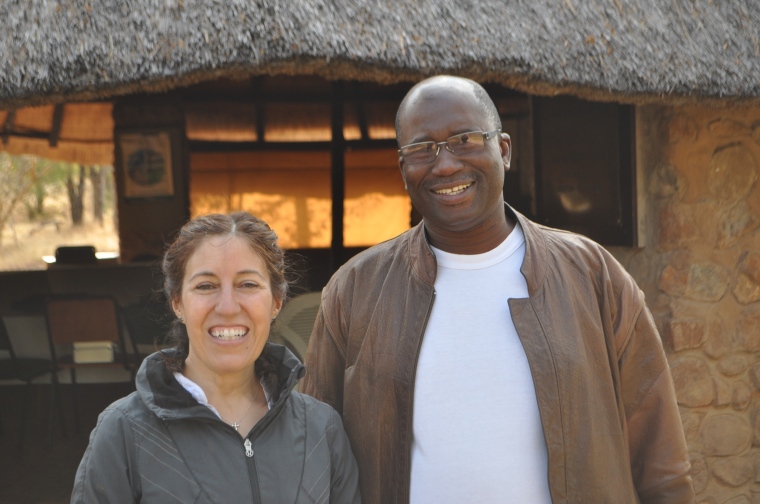“The program sort of links up very, very well with indigenous knowledge systems. The idea of conserving the environment is not a new phenomenon; it’s not a new idea. Our forefathers actually had some songs which were so emphatic on environmental conservation. They actually had some proverbs that had a lot to do with environmental conservation. They also had taboos which were so emphatic on conserving certain aspects [of the environment].”

I have been in all sorts of fascinating conversations with people since arriving here in Zimbabwe. But this one caught me by surprise–especially when the person I was speaking to broke into song! It all went down when I was interviewing John Nyilika, a training coordinator for the Africa Centre for Holistic Management. He pointed out how holistic land and livestock management relies on and honors traditional knowledge. The moment he began to speak of ancestral wisdom, my “wise traditions” ears perked up.
Here are some of the ancient truths he shared.
A taboo – It was said that it was taboo when you find two kudus in locked horns and fighting, it was actually taboo to kill both. You were only supposed to kill one. The idea was to make sure that the remaining one would remain in touch with all of the cows, female kudus, around. That taboo ensures conservation.
A proverb – We have traditional healers and they use some roots. The traditional healer will actually tell you to get to a certain tree–say, a marula tree. You just dig the root of the tree and just get a small [piece], say, about 15 centimeters of the root, and cut it off. And if you want to be healed by that root, please make sure to cover up that area and you don’t have to look back. After covering up, don’t look back and go away. Cover it up and go away. That aspect of covering up was to ensure that the tree would continue growing.
A tradition – If you needed a bark from a certain tree it was suggested that you get to the eastern side [of the tree.] You look for a tree which does’t have any scar. Just get to the eastern side, and just get a palm-sized bark from the eastern side. And you also go to the northern side, just get another palm-sized one, you see? And you leave the tree. [This] was to avoid ring-barking the tree and killing the tree. And looking for a tree which doesn’t have a scar was to make sure that you don’t continue using the same tree, [to avoid that] at the end of the day, the tree would die.
A song – There were also some songs. There were also some weeding and harvesting songs that have a lot to do with environmental conservation. This song which I will sing is on conservation. It can also be turned into a wedding song, but the words can also be used for environmental conservation. “Londolozani, londolozani, londolozani’mvelo londolozani ….” In short, it actually says we should not cut trees indiscriminately. We should not burn the forest, and so on. We should conserve our environment. And as people, you know, they will be rejoicing, drinking beer, and singing these songs, and dancing–at the same time, the children will also be hearing these songs. Initially it was just a wedding song, then they put these words to the song to enhance conservation ideas. To “lundulose” means to keep very well and even it goes [applies] to the bride and the bridegroom: you must not abuse her, treat her very well, treat him well.
These certainly sound like wise traditions to me. How about to you?
*****
Hilda Labrada Gore is the DC chapter leader for the Weston A. Price Foundation (WAPF). She is also the host of the WAPF-sponsored Wise Traditions podcast (on iTunes, Stitcher, and westonaprice.org). She is traveling in Zimbabwe and Kenya as part of the WAPF international project initiative.
